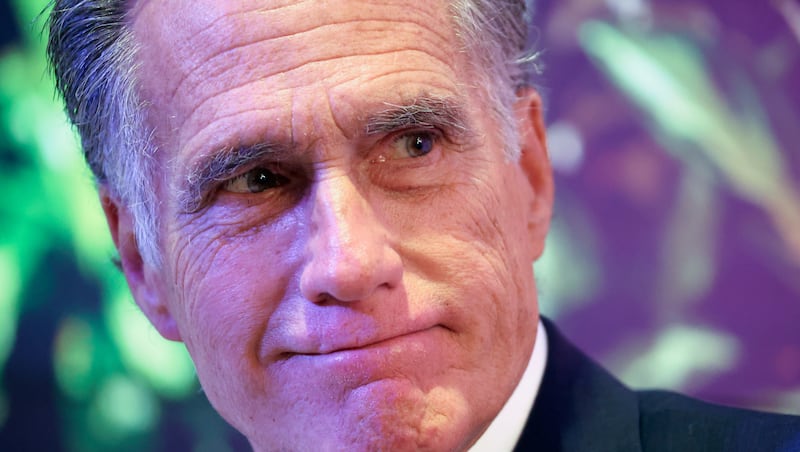With just weeks left in his single term in the Senate, Sen. Mitt Romney hopes to help the U.S. do a better job competing with China when it comes to investing in foreign development projects.
He and his Republican colleague from Arkansas, Sen. Dan Sullivan, introduced a bill Thursday designed to strengthen the U.S. International Development Finance Corporation, in an effort to compete with China’s massive Belt and Road Initiative.
China has been funding infrastructure projects in developing countries through its Belt and Road Initiative, including rail lines, highways, ports, power plants and telecommunication lines.
Romney and Sullivan want the U.S. to better compete in this space, and say the Development Finance Corporation, which funds projects in other countries in conjunction with private interests, should prioritize national security along with its other interests.
The bill would add the U.S. Defense Secretary to DFC’s governing board, and would require the DFC to “prioritize projects that help the United States compete with China and other covered countries.”
The bill would also require the head of the DFC to report to Congress on how it is achieving foreign policy objectives.
“The Development Finance Corporation was created to respond to global development needs and the Chinese Communist Party’s Belt and Road, but it is currently not living up to its potential,” Romney said in a press release.
Romney said the DFC needs to work for American interests and give other countries an alternative to accepting investment from China.
“Our legislation will do that by requiring DFC to prioritize projects that will help the United States better compete with China,” continued Romney.
Sullivan said a review of DFC’s projects will show the organization isn’t strategically focused. He thinks Congress needs to step in so the DFC will have a better focused on American national security interests.
“Sen. Romney and I are putting forward legislation to do just that,” said Sullivan. “I look forward to carrying this initiative forward in the new Congress as part of a larger bipartisan effort to address the threats posed by the Chinese Communist Party.”

